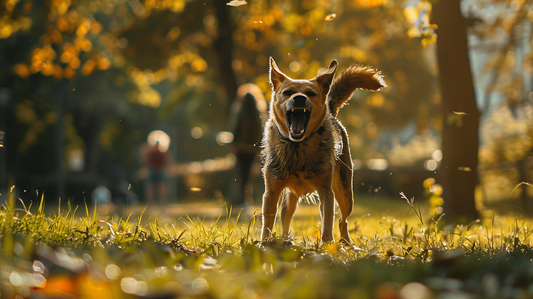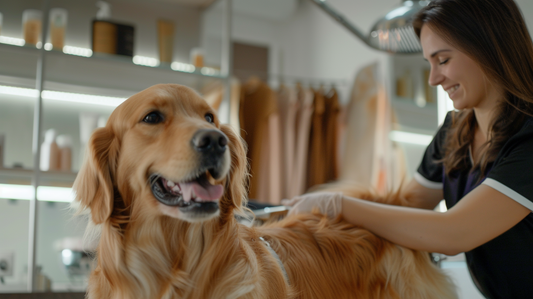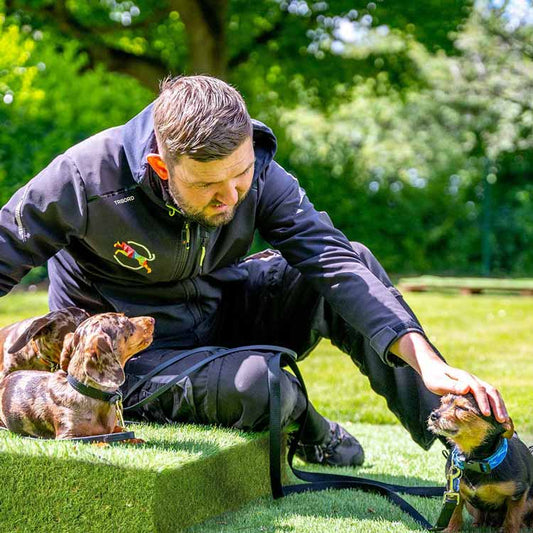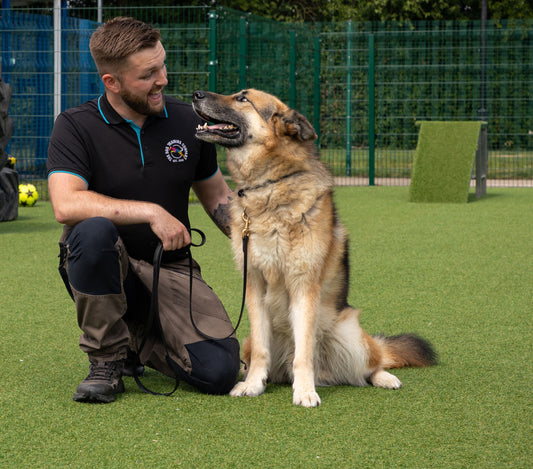
Need Tips for Puppy Socialisation?: Strategies for Raising a Balanced and Well-Behaved Dog
Mastering the Art of Puppy Socialisation
Introduction:
Understanding the importance of proper socialisation is key to raising a well-adjusted dog that remains calm and controlled when exposed to new people, dogs, environments, and experiences. A well-socialised dog will not exhibit stress or over-arousal when encountering novel stimuli. In this guide, we'll delve into the critical aspects of puppy socialisation, how to avoid common pitfalls, and the importance of striking the right balance between exposure and control during the socialisation process.
The Importance of Correct Socialisation:
Achieving proper socialisation involves providing puppies with positive exposure to a wide variety of stimuli they'll encounter throughout their lives, such as other dogs, people, objects, and places. However, introducing puppies to new experiences before gaining some control over them can be counterproductive and may hinder long-term dog training goals. It's essential to use exposure to new stimuli as an opportunity to create positive experiences, while ensuring the puppy remains balanced and under control. Our Puppy Training programme is designed to provide guidance on this essential aspect of raising a well-behaved dog.
Addressing Negative Puppy Behaviour:
Many dog owners mistakenly believe that their puppies will eventually outgrow negative behaviours, such as aggression towards people or other dogs. Contrary to this popular belief, dogs require guidance to learn which behaviours are acceptable and which are not, as well as which external stimuli are safe. Failing to maintain control during socialisation may result in puppies growing into unwanted behaviours. Our Behaviour and Obedience Training programmes help dog owners address and correct these behaviours.
For example, jumping on people may be excused while a puppy is small, but it's crucial for dog owners to consider whether this behaviour will still be acceptable a year from now. If not, they must take steps to address the behaviour early on.
Controlling the Environment:
Dog owners should strive to control their puppies' environment as much as possible during socialisation. Introducing a puppy to an unpredictable environment can lead to undesired dog training results. People and dogs interacting with the puppy should remain neutral or positive; if this cannot be guaranteed, it's best to avoid the interaction altogether. One negative experience at a critical stage may have detrimental consequences on the dog's behaviour later in life. Our Home Visit Training programme can help you create a controlled and positive environment for your puppy's socialisation.
When greeting other dogs, interactions should be controlled, positive, and brief. It's important to strategically choose which dogs and people the puppy interacts with, as eventually, the dog will need to learn to pass by others without engaging in every interaction.
Hyper-Socialised vs. Under-Socialised:
Dog owners who encourage their puppies to greet every person and dog without structure may inadvertently create a hyper-socialised dog. Such dogs often display poor manners, frustration on-lead, and may ignore recall off-lead in order to greet strangers or other dogs. Avoiding puppy parties, poorly structured daycare environments, and uncontrolled interactions can help prevent hyper-socialisation. Our Residential Training programme is designed to provide a structured and controlled environment for your puppy.
On the other hand, a dog with little or no exposure to new stimuli at an early age may become overly stressed and uncertain in new environments, around other dogs, or in the presence of unfamiliar people. The dog's inherent temperament, influenced by the breeding, will determine the severity of these issues. It's crucial to provide puppies with positive, controlled interactions with neutral dogs and calm people, exposing them to individuals and dogs of various sizes, appearances, and ages. Our Dog Training Assessment can help you identify areas where your puppy may need additional support and guidance during socialisation.
However, if these interactions are not controlled, the results are left to chance, potentially causing unnecessary stress for both the dog and owner later on. It's important to note that some stress during socialisation is normal and beneficial, as it fosters trust between the dog and its owner.
In Conclusion:
Proper socialisation is an essential aspect of raising a well-adjusted, well-behaved dog. By providing controlled, positive experiences and carefully managing the environment, dog owners can help their puppies grow into balanced and confident adult dogs. Remember, it's crucial to strike the right balance between exposure and control during the socialisation process.
At The Dog Training Company, we are dedicated to helping you and your puppy succeed in this journey. Our team of experienced trainers offers a range of services, from Puppy Training and Behaviour Training to Home Visit Training, Residential Training, and Assessments. Let us help you create the best foundation for a happy, well-socialised, and well-behaved dog.






